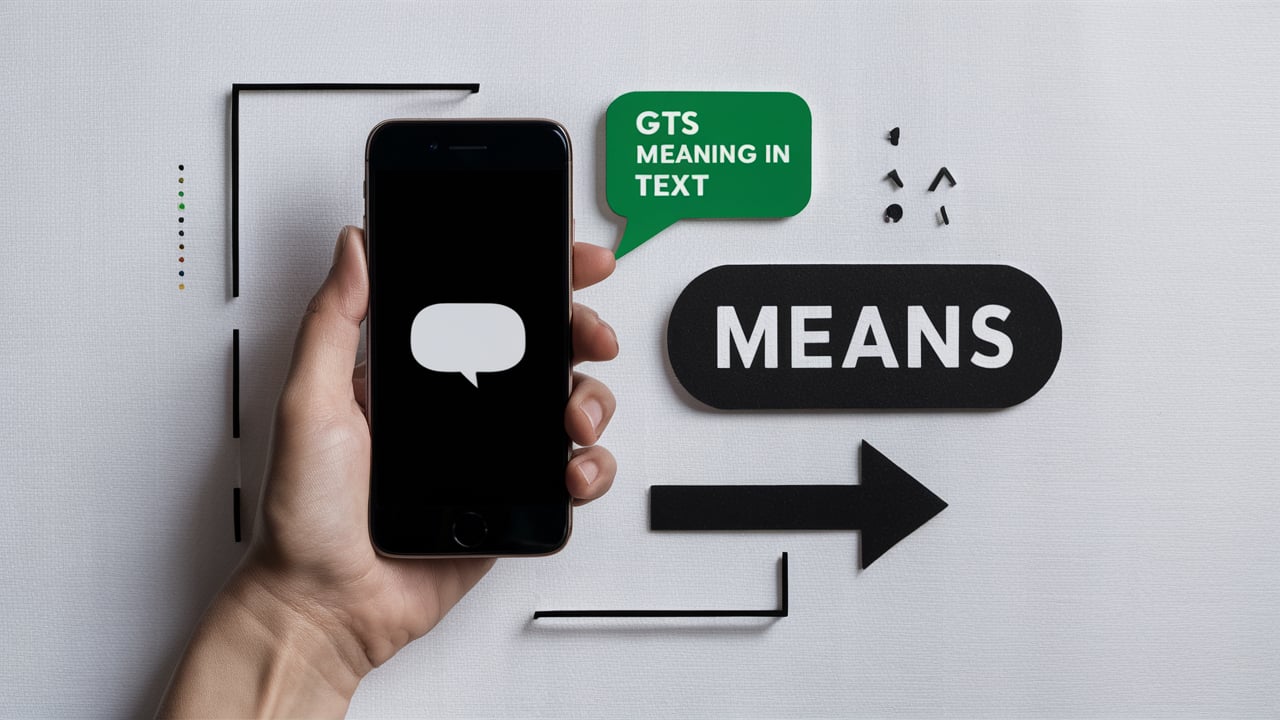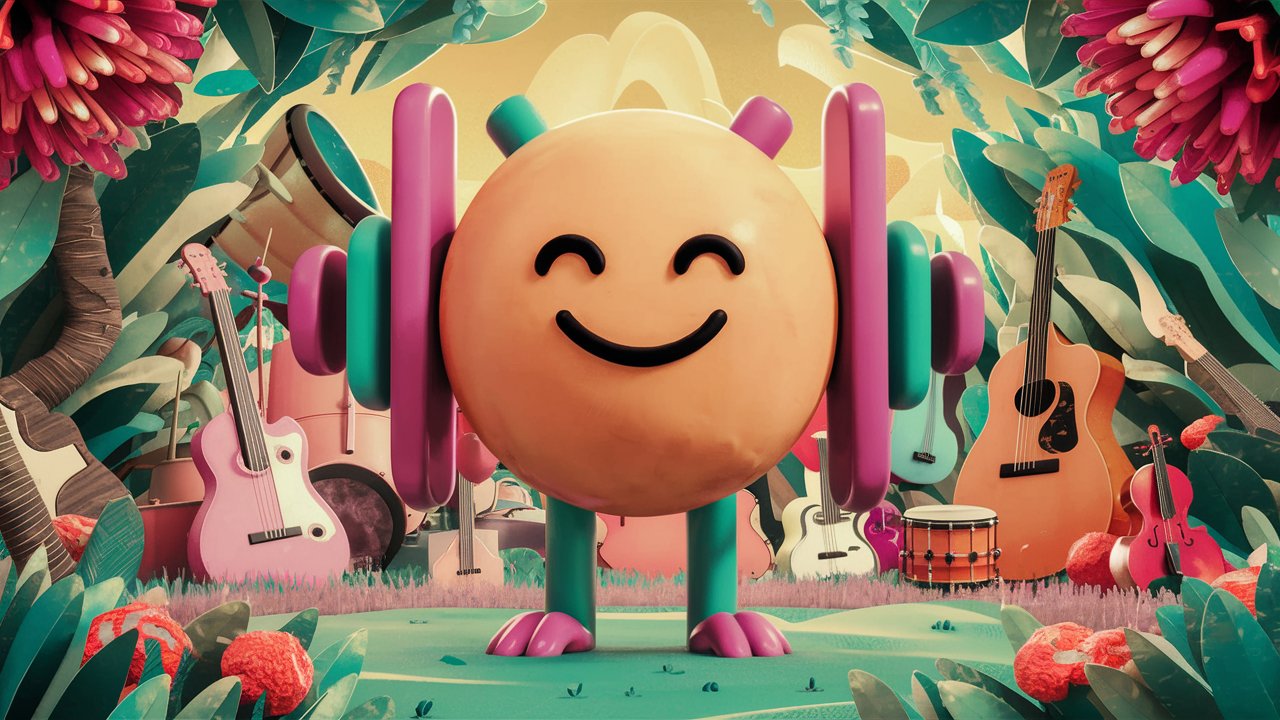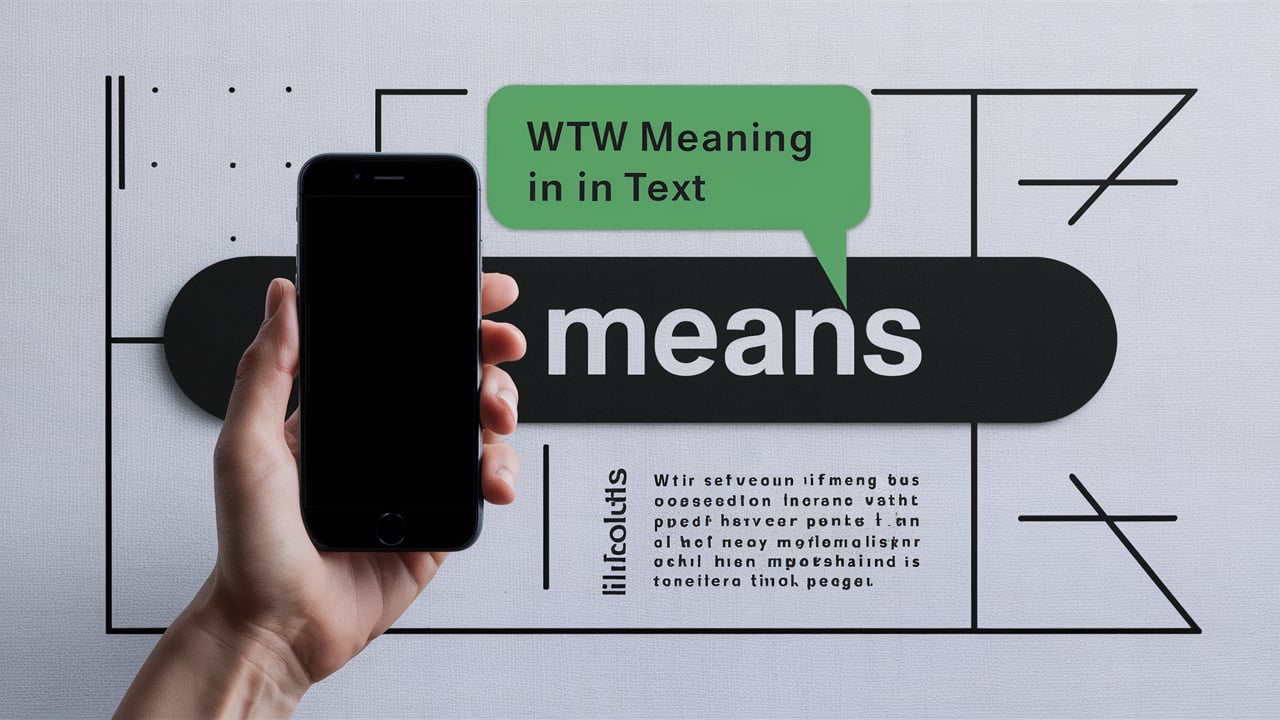In the fast-moving world of digital chats, acronyms spring up every day. One you may have encountered is “GTS”. But what does GTS mean in text messages, social media, or comment sections?
In this article, we’ll break it down in clear, conversational terms so you can use it confidently (or at least know what it means when someone else does). Let’s dive in! 👇
What Is the Meaning of GTS in Text?
When you see “GTS” in a message, chat, or comment, it’s an **abbreviation or acronym**. But it’s not a one-size-fits-all. The **most common meaning** is:
GTS = “Good To See”
People often use it when they’re happy to see someone, see a message, or check in. For example:
“Hey, GTS! How have you been?”
But like many acronyms, “GTS” can also have secondary or regionally variant meanings (we’ll cover those later). The key is always to use *context* to interpret it.
Alternate Meanings of GTS
In certain circles, “GTS” might also mean:
- Great To See — a close cousin meaning “good to see.”
- Go To Sleep — less common in casual chat, but occasionally used when someone is urged to rest.
- Gotta Says / Gotta Say — in informal speech, though this is rare.
- Glad To Support — more niche, used in forums or communities.
Despite these variations, **“Good To See”/“Great To See”** remains by far the most prevalent in everyday texting.
Origins & Evolution of GTS
Acronyms and texting slang evolve from **necessity and speed**. Here’s how “GTS” likely developed:
Need for Brevity in Texting
Early SMS and chat platforms had **character limits**, which encouraged shorthand. Over time, abbreviations like “LOL,” “BRB,” and “TTYL” became standard. “GTS” joined this lexicon as a way to express recognition or acknowledgment quickly.
Online Forums & Community Use
In message boards and chatrooms (IRC, forums, early social media), users often typed fast. “GTS” began popping up as a shorthand phrase when someone logged in, posted again, or simply reconnected.
Modern Social Media & Messaging Apps
Today, “GTS” lives mainly in platforms like WhatsApp, Telegram, Instagram DMs, Discord, and TikTok comments. Its usage has morphed somewhat — sometimes flirting with sarcasm or emphasis rather than just a neutral greeting.
Regional & Subcultural Shifts
In certain subcultures or regions, “GTS” may pick up alternate meanings. For instance, in gaming or fan communities, people might repurpose it creatively. Always be open to regional slang shifts.
Common Uses & Contexts
Let’s explore when and how “GTS” is commonly used:
Greeting Someone After a While
If you haven’t talked to someone in a bit:
“GTS! Long time no chat—how’s life?”
Replying to Someone’s Message or Post
When someone posts something after a gap, you might say “GTS” to express gladness to see them back:
“You’re back? GTS!”
Casual Chat with Friends or Peers
Used among friends, particularly when dropping into a group chat or thread again:
“GTS everyone!”
In Comments or Social Media Replies
On Instagram or TikTok, users might reply to a post with “GTS 👀” or “GTS boo” to show recognition or friendliness.
Subtext & Tone Play
Sometimes “GTS” carries tone: warmth, surprise, sarcasm, or even playful mock. For example:
“GTS — wow, I didn’t expect you here 😏”
Real-Life Examples of GTS
Below are practical illustrations to help you internalize how “GTS” works.
Example 1: Reconnecting with a Friend
Alice: “Hey, long time no talk!”
Bob: “GTS, Alice! How have you been?”
Example 2: In a Group Chat
Sam: “Hey guys, I’m back online.”
Rita: “GTS Sam 😊”
Example 3: Social Media Comment
“GTS — haven’t seen you post in forever!”
Example 4: Playful or Sarcastic Use
“Oh wow, GTS — this is a surprise 🙄”
Example 5: Alternate Meaning (if misinterpreted)
“You’re up late — go to sleep (GTS)!”
> Here, “GTS” would mean “Go To Sleep,” but this is rare and context-dependent.
GTS vs. Other Similar Acronyms
To avoid confusion, here are a few acronyms related to “GTS.”
GTS vs. “GTG” or “G2G”
- GTG / G2G: “Got To Go” — meaning you have to leave.
- GTS: “Good To See” — meaning you’re glad to see someone or that someone’s message or presence is noted.
GTS vs. “GGS” or “GGS?”
- GGS: “Good Game(s)” — used in gaming to show sportsmanship.
- GGS?: Sometimes “Good Game, Sir?” jokingly. Not related to “GTS.”
GTS vs. “GTG” (another meaning)
“GTG” occasionally means “Good To Go,” which is about readiness, not social acknowledgment. Be careful not to mix that with GTS.
GTS vs. “HTS” / “HWS” / “GDS”
Other texting shorthand exist (“HTS” = “How To Start?,” “HWS” = “How’s,” “GDS” = “Good”) — but they’re not usually confused with GTS if used correctly.
Why People Use GTS ✅
What makes “GTS” stick around in texting culture? Here are some advantages.
Speed & Efficiency
It’s faster to type “GTS” than “Good to see you” or “Great to see you.” Saves time and keystrokes.
Friendly & Warm Tone
Saying “GTS” feels less formal, more casual — it adds a **personal touch** without heavy typing.
Social Connection & Acknowledgment
Using “GTS” shows you respect and notice someone’s presence — it’s a social nod.
Trendy & Contemporary Vibe
Using current slang helps you blend in with digital culture and show you’re up to date.
Flexibility in Tone
“GTS” can be adapted with emojis, casual punctuation, or sarcasm to convey nuance.
Potential Pitfalls & Misunderstandings ⚠️
While “GTS” is handy, it’s not foolproof. Here are some pitfalls to watch out for.
Ambiguity in Meaning
Because “GTS” has alternate meanings in rare contexts, a reader might misinterpret it. Always lean on context.
Generational or Regional Gaps
Older generations or people outside your digital circle might not understand “GTS.” Use it where it’s appropriate.
Overuse Makes It Bland
If you use “GTS” in every message, it loses sincerity. Keep it occasional and meaningful.
Alternate Meanings Leading to Confusion
Someone might see “GTS” and think “Go To Sleep” — especially if in a conversation about late hours. Clarify when needed.
How to Use GTS Yourself (Smartly)
Here are tips for confidently deploying “GTS” in your own texts.
Match the Tone & Context
Use “GTS” in casual conversations, not in formal emails or serious discussions. If someone you’re texting is unfamiliar with texting slang, avoid it.
Use Emoji with It
Adding an emoji softens the acronym and gives emotional cue. E.g. “GTS 😊” or “GTS 👋.”
Combine with Friendly Language
Don’t just drop “GTS” alone; combine with a short phrase:
“Hey Sarah — GTS! How’s your day going?”
When Writing to New Contacts
Be cautious. If you’re texting someone you don’t know well, using full phrases first is safer. Once rapport builds, you can introduce “GTS.”
Use It Sparingly for Impact
A single “GTS” in a message can carry warmth — but too many dilute the effect.
Texting Etiquette & Tone
Using slang is fun — but **etiquette matters**. Here’s how to stay polite and clear.
Be Mindful of the Recipient
Consider who you’re texting. If they prefer more formal communication, choose full words over slang.
Avoid in Serious Conversations
In emotionally heavy or serious topics, “GTS” may feel insincere or superficial.
Be Context-Sensitive
If the flow of conversation is casual and light, “GTS” fits. If the tone is serious or ambiguous, skip it.
Don’t Use It in Professional Settings
In business or formal correspondence, slang like “GTS” can undermine professionalism.
When in Doubt, Clarify
If someone responds confused, follow up with the full phrase:
“By GTS I meant ‘Good To See’ — just happy to reconnect!”
E-E-A-T & Why It Matters When Using Slang
As you use or write about slang like “GTS,” aligning with Google’s 2025 SEO guidelines is smart. The E-E-A-T model (Experience, Expertise, Authoritativeness, Trustworthiness) guides how content is evaluated. Here’s how it applies:
Experience (E)
When you write about language or texting, include insights drawn from *real experience*. Mention where and when you’ve seen “GTS” used. This gives your writing authenticity.
Expertise (E)
You should show you know slang, linguistics, or internet culture. Use precise definitions, contrast similar terms, and cite sources or examples. This builds your reader’s trust.
Authoritativeness (A)
Linking (where appropriate) to reputable sources (language forums, dictionaries, chat culture writeups) can cement authority. Also, you can mention established style guides or communication studies in passing.
Trustworthiness (T)
Write transparently. Acknowledge where interpretations may vary. Encourage critical reading. Avoid sweeping, false statements. Honest nuance builds trust.
By weaving E-E-A-T in, your content not only helps your readers but also satisfies Google’s criteria for high-quality content in 2025.
Conclusion: Key Takeaways
To wrap up:
- GTS most commonly means “Good To See” (or “Great To See”).
- It’s used in **texting, social media, comments**, and casual chat to show acknowledgment or warmth.
- Alternate meanings exist, but are rare. Always use **context** to interpret correctly.
- Use “GTS” with emojis or friendly phrasing to soften tone.
- Avoid overusing it or using it in formal / serious settings.
- Follow E-E-A-T principles in your content or writing to stay credible and SEO-sound.
Next time you see “GTS” in a chat or comment, you’ll know exactly what it means and how to respond — confidently and fluently 😊.
If you’d like help with other texting slang (like “BRB,” “SMH,” or “FOMO”) or optimizing SEO for digital lingo, just say the word!



